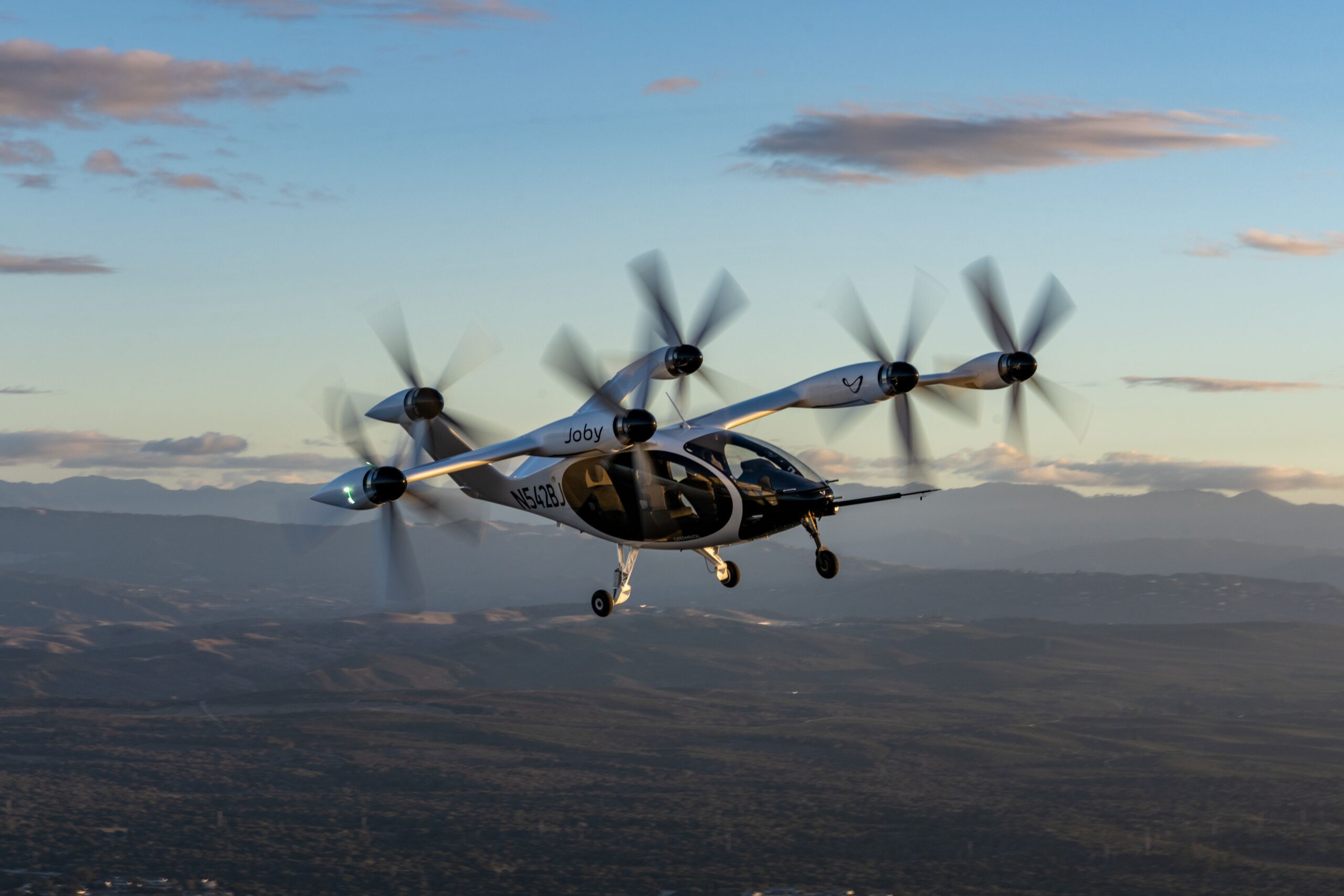Joby Aviation’s electric vertical takeoff and landing aircraft is now 84 percent on its way to finishing Stage 3 of the Federal Aviation Administration’s certification requirements, the company’s chief executive announced Nov. 1.
The company checked off several milestones in the past three months that bring it ever closer to launching commercial passenger flights in 2025, Chief Executive JoeBen Bevirt told financial analysts during a Nov. 1 earnings call.
At least 84% of the company’s Stage 3 Certification Plans have been accepted by the FAA, including battery and high-voltage power distribution systems.

Four Joby pilots have flown the eVTOL so far. Joby photo
“This is a critically important milestone for us that builds on a long history of battery development and testing and brings us one important step closer to certification,” Bevirt said during the call. “We’re now proceeding at pace in our work on stage four.”
Joby is ramping up production at its pilot manufacturing facility in Merina, Calif., with one aircraft in final assembly and two more in production. It also has chosen Dayton, Ohio, as the site for the first scaled manufacturing facility, after receiving promises for $325 million in state and local incentives and benefits, Bevirt said.
“Dayton was the home of the Wright brothers and America’s first aircraft factory and today it maintains a deep talent pool for both commercial and defense aerospace,” he said. “It is also home to the Wright Patterson Air Force Base, which directs more than 40% of Air Force spending.”
During the quarter ended Sept. 30, Joby delivered the first of a possible nine eVTOL aircraft to the Air Force at Edwards Air Force Base in California, under a $131 million AFWERKS Agility Prime contract. Bevirt said a second aircraft is on track for delivery to the Air Force in “early 2024.”
Joby’s flight test campaign in support of certification progressed to having pilots on board. During the quarter, four Joby pilots completed flights that included forward transitions to semi-thrust-borne flight.
“Four of our pilots assess the ease of conducting a number of maneuvers that pilots will be required to perform during normal operations, including holding a precise hover, tracking the runway centerline and decelerating to a vertical landing,” Bevirt said. “They also perform more complex maneuvers such as flying precise circles around the center point, something which was considerably simpler in our aircraft than in a helicopter. These tests provide important data and feedback to advance our program.”
Clarification: Joby has finished with 84 percent of its Stage 3 FAA certification work.